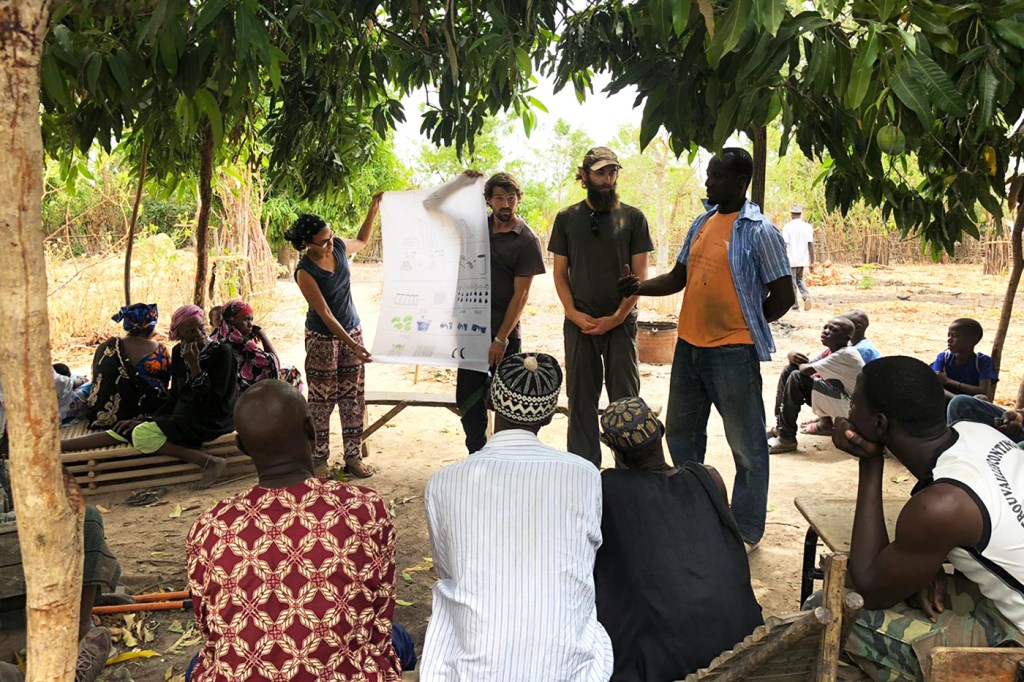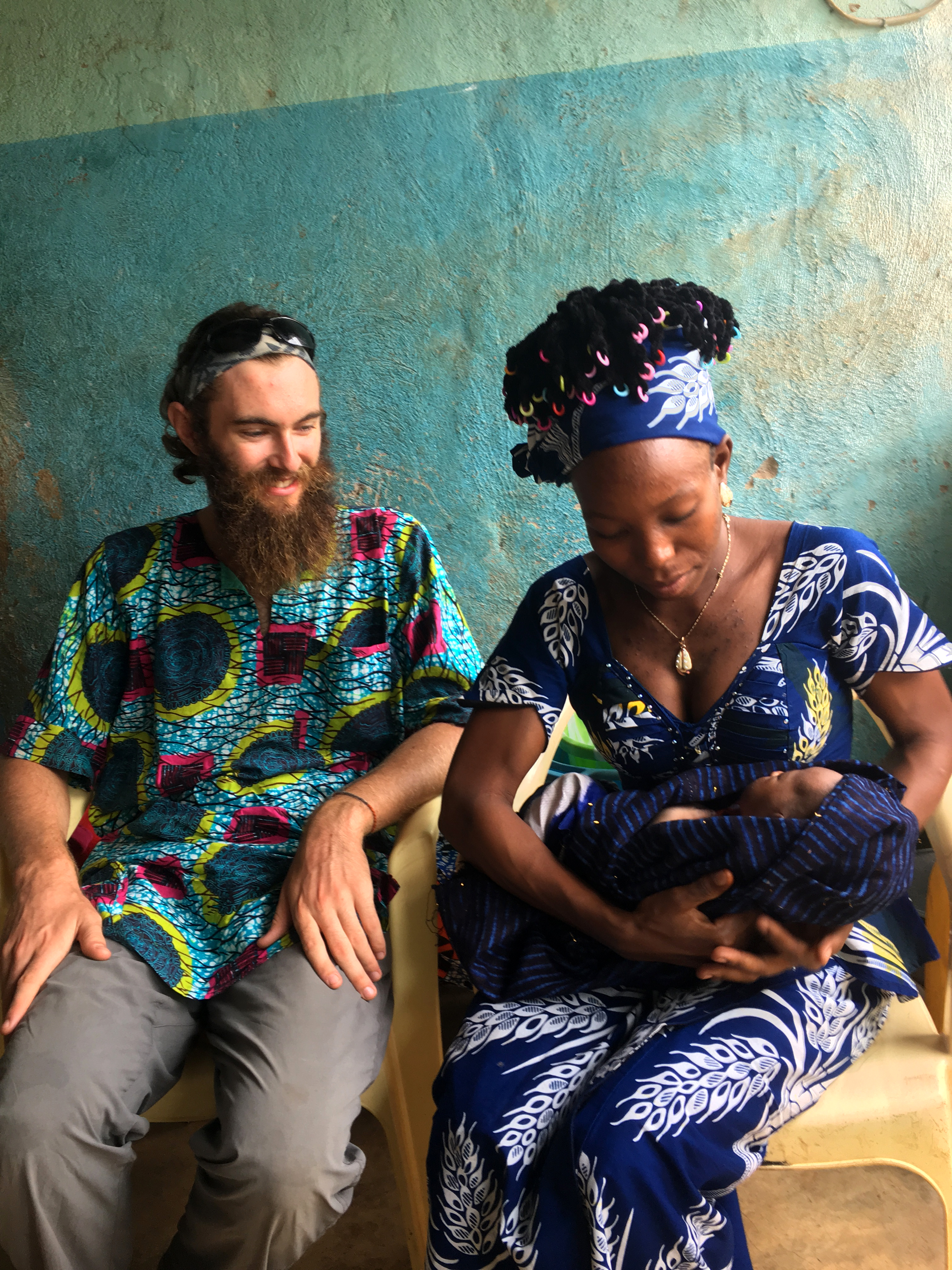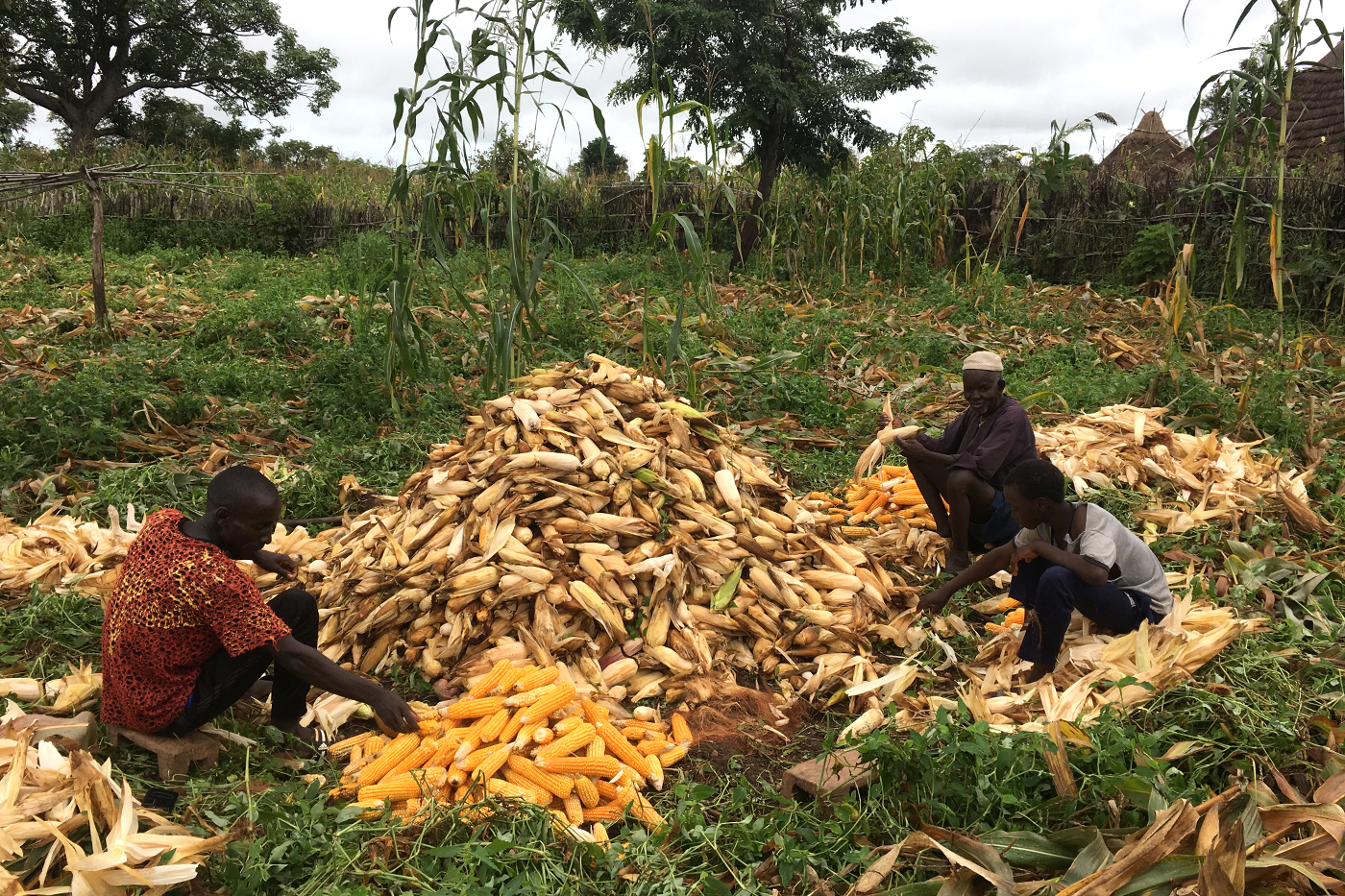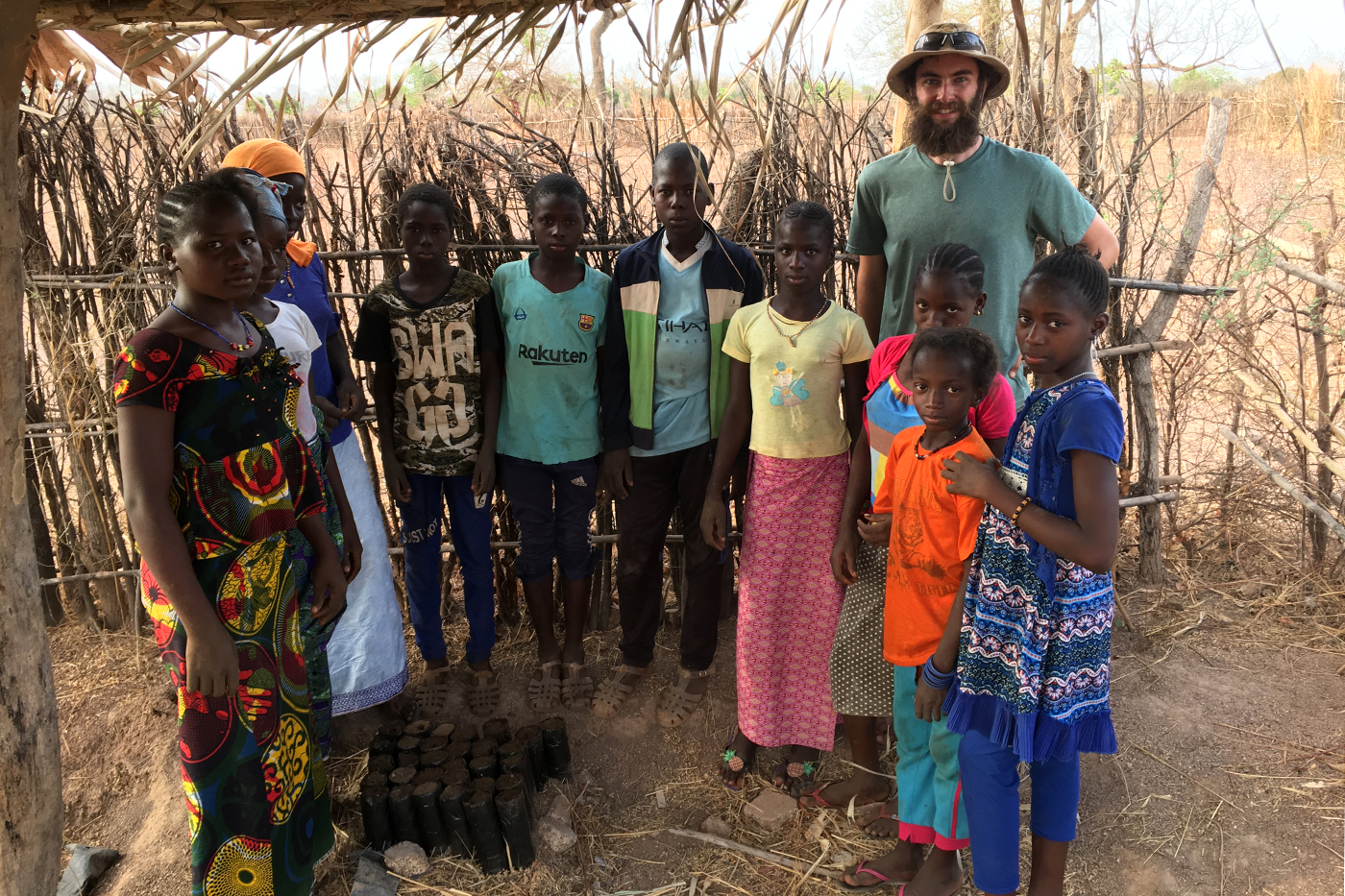He broke down (language) barriers and built (live) fences in Senegal

When Tavish Fenbert first stood alone in his hut in rural Senegal, the only thing that distinguished it as his own were his suitcases. Overwhelmed, he couldn’t help but think to himself, “What do I do now?”
It was just a few months after he had graduated from Northeastern and left his peers behind to join the Peace Corps. But now he was facing the realities of that choice.
He had just a month and a half of practice with the local language, and could confidently say only the basics: “Hello,” “I’m hungry,” and “Where do I get water?” In the city he had been able to skate by with his middle-school French, but not anymore. Now, he was alone in the village in which he would live for the next two years, without another French speaker—let alone an English speaker—for miles around. Not only that, but he also had to adapt to a whole new culture.
“It was difficult; it took a lot of watching and observing people and trying to record every detail so I could imitate it, and finding a couple of people that I could ask if I didn’t know how to do something,” says Fenbert.
15 months later, he had come a long way in his language skills (although he says there were still times every day when he got confused) and finding his way into a new culture and way of life.



Fenbert graduated from Northeastern in 2018 with a degree in mechanical engineering, and his experiences at the school cemented his plan to study abroad with the Peace Corps. He lived in the southeast region of Senegal as an agroforestry volunteer, and his daily work included planting trees, building mud stoves, and helping teach the local children the importance of protecting the environment. As with all Peace Corps volunteers, Fenbert was evacuated from Senegal and returned home to Seattle over the weekend.
Work in the Peace Corps was an exercise in juggling. Fenbert worked with the students at the local primary school’s environmental club, created tree nurseries with interested villagers, helped build mud stoves (which burn less wood), and more.
Most of the people in Fenbert’s village are farmers of some kind of crop—rice, peanuts, and corn are the most common crops—but many of them have a side business as well, anything from fixing bikes to selling bamboo fences. So, convincing them to change their habits in order to work in a more sustainable way often required explaining the long-term economic benefits. For example: Villagers could make money immediately selling firewood, but if they plant fruit trees instead, they can make money over several years, while also preventing deforestation.
“Their whole lives are so intertwined with the natural resources and environment that it’s really important to help try to give people a bigger picture view how they can improve [sustainability efforts], and plant trees to not only increase their income and crop yields, but also prevent deforestation,” says Fenbert.
One way to prevent deforestation is to build live fences. Most families live in a compound of multiple huts for different family members surrounded by a fence. A live fence, as the name suggests, uses live plants that are strategically planted to create the fence, instead of chopping down plants to make a wooden fence.
But Fenbert says most of his day-to-day work was building relationships, and that’s part of why his language skills have improved so much. He talked with his host father, who is also the village chief; his host mothers; the villagers; and the kids, about anything and everything: work, food, sports—the list goes on. Fenbert says he learned that in Senegalese culture, it’s not the substance of a conversation that matters, it’s making the effort in the first place.
And in a village of just 400 people, those relationships with villagers helped him accomplish work more quickly later on.
Fenbert’s interest in living and working in places around the world goes back to his childhood. Several members of his family joined the Peace Corps when he was younger, and he was first inspired to go abroad during his time at Northeastern.
His final co-op took him to Mumbai, India, where he worked on projects for spice production, including designing a solar-powered spice roaster for the production of masala (a staple spice mix in India) in rural areas.
The experience cemented his plan to go abroad for a longer period of time, and his experience working in rural agriculture encouraged him to apply for the agroforestry position in the Peace Corps.
“I loved being [in India], and not just traveling through an area but getting to know it, the details that you only get with living there,” says Fenbert. “I really wanted to have that experience again.”
Adjusting to life in Senegal took some time, Fenbert says; the pace of life is much slower and the sweltering temperatures mean there’s not a lot of time during the day to be out and about.
But while there were still times when he struggled, Fenbert says it just made the good days feel all the better.
“When I had a really great day in the village and had a long conversation, or did a lot of work with someone, and had a day when everything was going right—it was a great feeling,” he says.
For media inquiries, please contact media@northeastern.edu.





